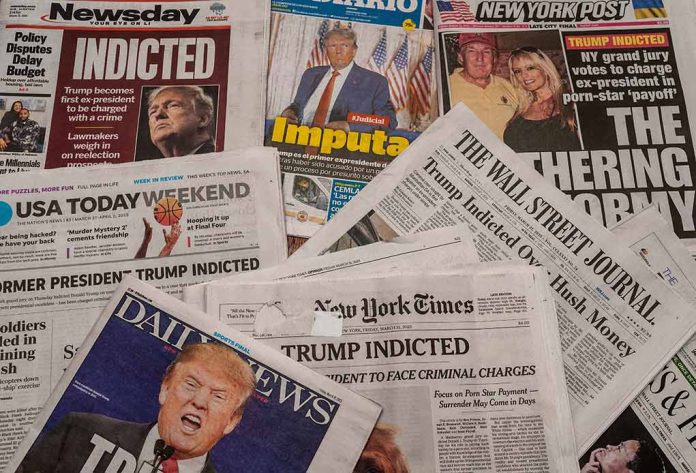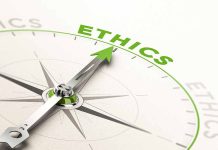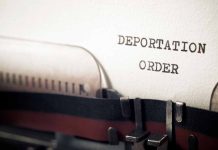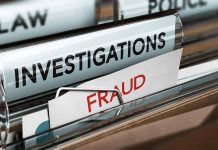
Judge Juan Merchan signals no jail time for Trump in hush money case, opting for ‘unconditional discharge’ amid presidential immunity challenges.
At a Glance
- Trump convicted on 34 felony counts for falsifying business records related to hush money payments
- Judge Merchan leans towards ‘unconditional discharge,’ avoiding jail time, fines, or probation
- Sentencing scheduled for January 10, 2024, just days before potential presidential inauguration
- Trump’s legal team plans to appeal, citing presidential immunity concerns
- Case highlights tension between presidential duties and legal accountability
Judge Signals Leniency in Trump’s Hush Money Case
In a surprising turn of events, Judge Juan Merchan has indicated he intends to sentence former President Donald Trump to an “unconditional discharge” in the New York hush money case. This decision comes despite Trump’s conviction on 34 felony counts related to falsifying business records for payments made to adult film actress Stormy Daniels. The judge’s ruling effectively means Trump would avoid prison time, fines, or probation, despite facing up to four years behind bars.
The sentencing hearing is set for January 10, 2024, a mere ten days before the presidential inauguration. This timing has raised eyebrows and sparked debate about the intersection of legal proceedings and political responsibilities.
BREAKING: The judge in President-elect Donald Trump's New York criminal hush money case indicated Friday that he intends to sentence Trump to an "unconditional discharge" out of respect for the presidential immunity doctrine. https://t.co/gtxh530iDY pic.twitter.com/BGUSSElyfp
— ABC News (@ABC) January 3, 2025
Balancing Act: Presidential Immunity and Legal Accountability
Judge Merchan’s decision reflects a delicate balancing act between upholding the jury’s verdict and acknowledging the unique challenges posed by presidential immunity. The judge emphasized the importance of maintaining the integrity of the conviction while avoiding measures that could significantly impede Trump’s potential presidential responsibilities.
“This court is simply not persuaded that the first factor outweighs the others at this stage of the proceeding,” Judge Merchan stated, highlighting the complexity of the situation.
The ruling has drawn criticism from Trump’s camp, with spokesperson Steven Cheung calling it “a direct violation of the Supreme Court’s Immunity decision and other longstanding jurisprudence.” Trump himself has consistently maintained his innocence, characterizing the case as politically motivated and aimed at damaging his 2024 presidential campaign.
Legal Implications and Future Challenges
While the judge’s decision avoids immediate severe consequences for Trump, it does not negate the gravity of the conviction. If the sentencing proceeds as planned, Trump would become the first president in U.S. history to take office with felony convictions. This unprecedented situation raises questions about the balance of criminal justice and executive power.
The case centers on how Trump accounted for reimbursing his attorney, Michael Cohen, for the payment to Stormy Daniels. Prosecutors argued these payments were improperly logged as legal expenses to conceal their true nature. Trump’s defense maintains the payments were for legitimate legal services and not intended to influence the 2016 election.
Just in:
Judge Juan Merchan has set a Jan. 10 sentencing for President-elect Trump in his New York hush money case conviction and indicated Trump will receive an "unconditional discharge," which will allow him to avoid jail time.https://t.co/kcgxaxDP1w pic.twitter.com/G814vzdzK9
— Taylor Popielarz (@TaylorPopielarz) January 3, 2025
Broader Legal Landscape for Trump
The hush money case is just one of several legal challenges the former president has faced. Trump is also contended with three other criminal indictments, including cases related to classified documents and allegations surrounding the 2020 election. However, this New York case is the only one to have gone to trial.
“President Trump must be allowed to continue the Presidential Transition process and to execute the vital duties of the presidency, unobstructed by the remains of this or any remnants of the Witch Hunts. There should be no sentencing,” Cheung argued, underscoring the tension between legal proceedings and potential presidential duties.
As the January 10 sentencing date approaches, all eyes will be on New York to see how this unprecedented legal situation unfolds. The outcome of this case will have far-reaching implications for the balance between presidential power and legal accountability in the United States.






















